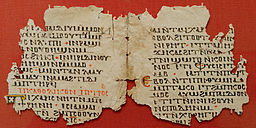What does the Bible say about gay men?
The Bible describes sex between two men as a wicked, detestable, vile, outrageous, shameful sin. It says any men who do this have to be killed, and will not be allowed into the kingdom of God.
Does it really say that?
I’m pretty sure it does. Some people say the Bible isn’t as anti-gay as it seems, but I’m not convinced.
Some say the law against gay male sex can’t be about gay sex in general because that’s too private for the law to be enforceable, since there aren’t likely to be multiple witnesses. So they say that law must really only be about public acts of temple prostitution. But by that logic, you would have to conclude that none of the Bible’s rules about sex apply to acts done in private. Not even the laws that specifically say nobody else is around. I doubt that’s what was intended.
Some say Paul was only specifically condemning the practice of pederasty, but that’s not what he said. The word he used translates literally to “man-bed”. Why wouldn’t he use a word that specified boys or teenagers, if that was what he meant? And nobody thought it was wrong for adults to have sex with teenagers back then, so even if Paul was talking about pederasty, the age issue is probably not the part he would have objected to.
Some say the Bible implies that if you’re a man who sleeps with men or a woman who grinds with women, you have a 50% chance of being raptured into heaven, while for the rest of us who try to enter through the straight gate, the chance of being saved is much lower. But does the Bible actually say those people who are being taken are going to heaven? According to one of Jesus’s parables, the first people who will be taken away at the end of the age will be sinners being taken to hell.
There are more passages in the Bible that could be seen as vaguely pro-gay, but interpreting them that way is a bit of a stretch, especially considering how much more straightforward and clear the other passages are that say gays must be killed, etc.
But why?
What’s so bad about homosexuality, that it would deserve that kind of punishment? Nothing at all, as far as I can tell. I haven’t heard any good reasons to think gay sex is immoral. I’ve heard some bad ones though…
Continue reading Homosexuality in the Bible →
